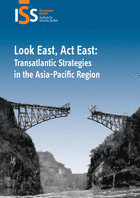You are here
US Task Force 2011 EU-US counter-terrorism cooperation since 9/11: challenges and perspectives

The development of homeland security stimulated several interesting debates at the transatlantic level, the most important of which focused on the future balance between liberty and security. Many of the objections expressed by the European Parliament and civil liberties organisations in Europe concerned the increasing powers of government agencies and the diminishing rights of citizens. The debate became more heated fuelled by press reports about the expanding use of personal information collected by private actors for commercial purposes (e.g. the SWIFT controversy), and the application of advanced technologies to protect the homeland (e.g. terrorist profiling and data mining). At the same time, we have seen an increase in cooperation between the European Union and the United States. During the Joint EU-US Ministerial of 20 September 2001, European and American leaders made the commitment to ‘work in partnership in a broad coalition to combat the evil of terrorism’ and to ‘vigorously pursue cooperation’ in several areas: aviation and transportation security; police and judicial cooperation; border controls, including visa and document security; export control; and law enforcement and exchange of electronic data. The aim of this workshop is to shift the transatlantic debate away from the dichotomy between conflict and cooperation towards more pragmatism and a focus on problem-solving. The objective of this meeting is to generate concrete policy recommendations for advancing EU-US security cooperation. In that context, this expert meeting is organised along three major themes: internalexternal security, multilevel security governance and how to improve EU-US cooperation. This event was organised with the support of the European Commission and the United States Mission to the European Union.